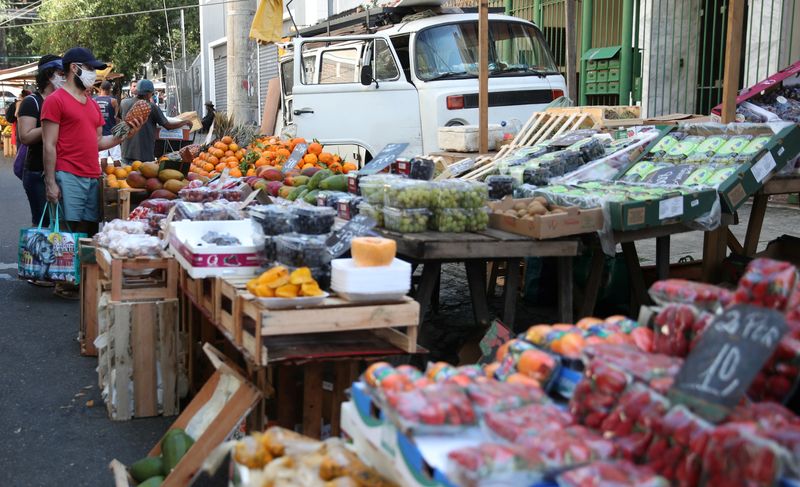Rising food prices boosted inflation Brazil in November
2022.12.09 08:45
[ad_1]

Rising food prices boosted inflation Brazil in November
Budrigannews.com – On Friday, the government statistics agency IBGE reported that Brazil’s consumer prices as measured by the benchmark IPCA index rose 0.41 percent in November, falling short of market expectations of 0.53 percent.
Costs associated with transportation and food and beverages were the primary contributors to the rise, accounting for approximately 71% of the IPCA in November.
The most recent inflation numbers come just a few days after Brazil’s central bank kept interest rates at 13.75 percent for the third time in a row, despite highlighting the fiscal uncertainties caused by a planned increase in government spending.
According to IBGE, the increase in transportation was primarily caused by the rise in fuel prices (3.29%), which had decreased by 1.27 percent in October. However, ethanol, gasoline, and diesel prices increased in November.
Pedro Kislanov, the research manager at IBGE, stated, “This (increase) occurred due to an off-season period for sugarcane production as gasoline contains anhydrous alcohol in its composition.”
According to Andres Abadia, chief Latin America economist at Pantheon Macroeconomics, analysts anticipate that disinflation will likely continue in 2023, particularly in the first half, when inflation is anticipated to reach around 4.5 percent in June before edging higher due to less favorable base effects.
“We anticipate that inflation will end in 2023 just above 5%. “Risks to the outlook are balanced at this point,” Abadia stated, noting that disinflationary forces may be offset by deteriorating global conditions and the fiscal backdrop.
More Massive outflow of investments from US stock market
Prices increased by 5.9% year-over-year through November, down from a 6.47 percent increase in October. Reuters polled economists and forecast a rise of 6.01 percent.
William Jackson of Capital Economics stated that the further decline “will help to ease the squeeze on household incomes.”
“However, the central bank’s policymakers will take their time before turning to rate cuts because the prices of many core goods and services continue to rise rapidly and, more importantly, the growth of fiscal risks.”
As President-elect Luiz Inacio Lula da Silva plans to increase spending next year, the central bank stated after its rate-setting meeting this week that it would closely monitor future developments in fiscal policy, as well as their effects on asset prices and inflation expectations.








